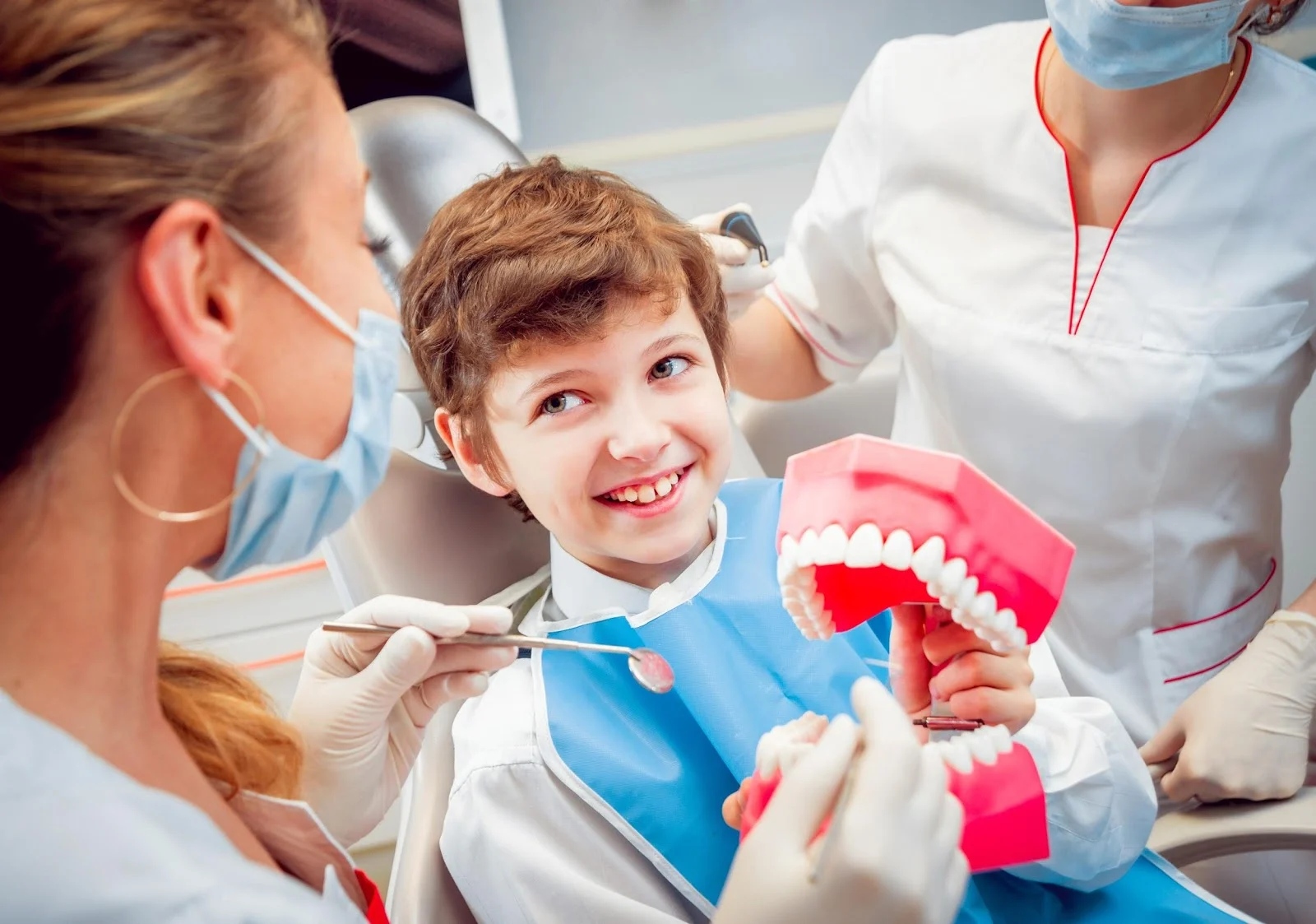
There are many signs that your child needs braces early on in life, it can be puzzling for parents to understand what these signs are when they don’t know what they’re looking for. We are happy to help you through it! Here are five of the most common signs your child needs braces.
Crooked Teeth
One of the easiest ways to tell if your child need’s braces is by looking at their smile. If their teeth appear to be crooked or if they are overlapping each other, they will likely need some form of orthodontic treatment! The most common causes of crooked or overlapping teeth in kids include but aren’t limited too:
- Genetics: If mom and dad needed braces to correct crooked teeth, chances are the kids will too.
- Mouth Breathing: This can cause a number of different complications in a child’s developing mouth. Crooked teeth and overlapping teeth are just a few of them!
- Thumb Sucking: The action of sucking can cause a number of different bad bites for your child’s developing mouth that need to be corrected with orthodontic treatment.
Your Dentist Told You So
Most times, your dentist is the first person to notice your child will need braces. To many people’s surprise, there is a lot more than what meets the eye when it comes to a healthy smile. It’s possible for your child to have straight teeth but still need braces. The most common reasons for that include:
- Bad Bite: A bad bite is exactly what it sounds like. When your child’s jaw is not aligned it can cause a number of different problems for their bite which could lead to jaw, neck and back pain later on in life.
- Teeth Alignment: Although their teeth can look straight, they could be unaligned which could cause more severe problems for your child the longer it goes untreated.
- Sleep-Related Bruxism: Otherwise known as teeth grinding, bruxism can cause a lot of harm to your teeth. Orthodontic treatment can stop bruxism in its tracks before it causes TMJ pain, chipped or damaged teeth.
Speech Difficulties
The way your child speaks has a lot to do with the alignment of their jaw and teeth. If they are having a hard time with speech consult with your child’s dental care specialist as it could be one of the following issues causing the difficulties with speech:
Late Losing Babyteeth
Baby teeth fall out on their own schedule but if your child is past the age of 12 and still has baby teeth, it is a good idea to consult with an orthodontist about braces and here is why:
- Adult Teeth Need Room: Regardless if your child still has baby teeth, when the adult teeth are ready to come in they will. What this means for your child’s mouth is overlapping and shifting teeth.
- Higher Chance of Crooked Teeth: With baby teeth still in place, adult teeth have a much higher chance of shifting and growing in crooked.
- They Might Need Braces Sooner than Later: If your child’s oral care provider feels like they have enough adult teeth, they might begin braces treatment sooner than later. This could result in having to get the remainder of the baby teeth pulled to make way for braces and adult teeth in order to prevent further issues.
Difficulty Biting or Chewing
If your child’s teeth are aligned the way they are supposed to be, eating and chewing should be a breeze. Those who suffer from misaligned teeth or jaw are likely finding it difficult to properly eat food which can then affect their development. Braces will help with this by shifting your child’s teeth into the ideal position allowing them to function as they should. The most common symptoms of un-alignment include:
- Pain While Chewing: If your child complains of pain while biting into an apple or chewing hard foods, they could be suffering from TMJ pain due to an unaligned jaw.
- Not Chewing Well: A great indicator of an unaligned jaw is having difficulties with breaking down food. This could lead to indigestion and stomach pain.
- Avoiding Food: Pain while eating is a very common side effect when it comes to an unaligned jaw. Some children might avoid food altogether to prevent pain, it is important you encourage them to eat soft foods that require minimal chewing and make their orthodontist aware of these symptoms.





